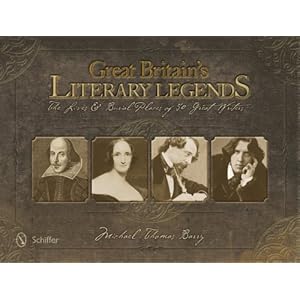English poet and playwright John Dryden died on May 1, 1700 in London, England. He was a dominating
literary figure of the Restoration period in England. Dryden was born on August
9, 1631 in the village of Aldwincle, Northhamptonshire. He was the eldest of
fourteen children born to Erasmus Dryden and Mary Pickering. His paternal grandfather
was Sir Erasmus Dryden, 1st Baronet. He was also a second cousin
once removed of Jonathan Swift. In 1644 he was sent to Westminster School as a
King’s Scholar. As a humanist public school, Westminster maintained a
curriculum which trained pupils in the art of rhetoric and the presentation of
arguments for both sides of a given issue. This is a skill which would remain
with Dryden and influence his later writing and thinking, as much of it
displays these dialectical patterns. The Westminster curriculum also included
weekly translation assignments which developed Dryden’s capacity for assimilation.
This was also to be exhibited in his later works.
In 1650 Dryden attended
Trinity College, Cambridge where he would experience a return to the religious
and political ethos of his childhood. Though very limited information on
Dryden’s undergraduate years, he would most certainly have followed the
standard curriculum of classics, rhetoric, and mathematics. In 1654 he obtained
his BA, graduating at the top of his class. In June of the same year Dryden’s
father died, leaving him some land which generated a little income, but not
enough to live on. Returning to London, Dryden obtained work with Cromwell’s
Secretary of State, John Thurloe. In 1658, he published his first important
poem, Heroique Stanzas, a eulogy on Oliver Cromwell’s death which is
cautious and prudent in its emotional display. In 1660 Dryden celebrated the Restoration
of the monarchy and the return of Charles II with the poem Astraea Redux.
After the
Restoration, Dryden quickly established himself as the leading poet and
literary critic of his day and he transferred his allegiances to the new
government. Dryden welcomed the new regime with two more panegyrics; To His
Sacred Majesty: A Panegyric on his Coronation (1662), and To My Lord
Chancellor (1662). These poems suggest that Dryden was looking to court a
possible patron, but he was to instead make a living in writing for publishers,
not for the aristocracy, and thus ultimately for the reading public. On December
1, 1663 Dryden married Lady Elizabeth Howard but little is known of the
intimate side of his marriage. Lady Elizabeth however, was to bear him three
sons and outlive him.
With the reopening
of the theaters after the Puritan ban, Dryden busied himself with the
composition of plays. His first play The
Wild Gallant appeared in 1663. He led the way in the Restoration comedy with
such works as Marriage a la Mode and All
for Love. Dryden was never satisfied with his theatrical writings and
frequently suggested that his talents were wasted on unworthy audiences. He
thus was making a bid for poetic fame off-stage. In 1667, around the same time
his dramatic career began, he published Annus
Mirabilis, a lengthy historical poem which described the events of 1666. It
was a modern epic in pentameter quatrains that established him as the
preeminent poet of his generation, and was crucial in his attaining the posts of
Poet Laureate (1668) and historiographer royal (1670).
When King James II
was deposed in 1688, Dryden’s refusal to take the oaths of allegiance to the
new government left him out of favor at court. Thomas Shadwell succeeded him as
Poet Laureate, and he was forced to give up his public offices and live by the
proceeds of his pen. Dryden translated works by Horace, Ovid, and others, a
task which he found far more satisfying than writing for the stage. In 1694 he
began work on what would be his most ambitious and defining work as translator,
The Works of Virgil (1697). Dryden died on May 1, 1700, and was
initially buried in St. Anne's Cemetery in London, before being exhumed and
reburied in Westminster Abbey.
Michael Thomas Barry is the author of Great Britain’s Literary Legends.
The book can be purchased from Amazon through the following links:



No comments:
Post a Comment